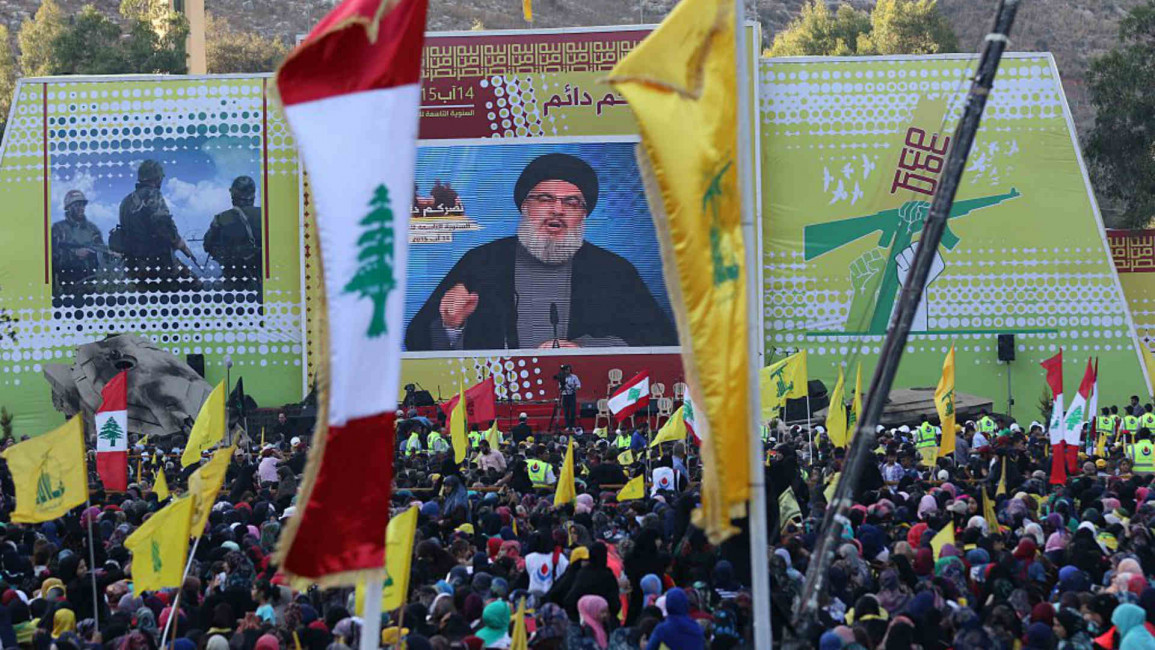
Hizballah's hubris is being reined in by an unpredictable Saudi regime
The move is a stark reminder that while Hizballah has become a regional military power, its home base remains extremely vulnerable.
Hubris is no excuse for military and political miscalculation, and Hizballah should tread carefully in a region where deadly black swans abound, with leadership in Washington and Riyadh unwilling to prioritise Lebanon's stability over their strategic interests.
Since 2016, it has looked as though the stars in Hizballah's sky were beginning to align. The organisation has been allowed to war freely in Syria, where its fighters have contributed to wrestling back large areas from the Syrian opposition, as well as the Islamic State group, alongside forces close to the regime of President Bashar al-Assad.
Hizballah is now believed to be at its strongest, with the Israeli army putting its manpower at 30,000, a figure other experts believe to be much higher. The organisation has expanded its use of Iranian weaponry and acquired deadly experience in Syria, where it has operated as a conventional army while coordinating attacks with a wide range of forces, including those from Russia.
In Lebanon, Hizballah has been able to co-opt the government into distancing itself from the party's regional agenda while pushing for a number of controversial policies such as a normalisation of relations with Syria and a new parliamentary law that would fragment its political enemies.
 |
While Hizballah has become a regional military power, its home base remains extremely vulnerable |  |
An emboldened Hassan Nasrallah, Hizballah's leader, has also issued numerous threats in the past few months against the US and the Gulf, including Saudi Arabia.
Hizballah's hubris is rooted in its many military achievements and in the confidence it draws from the relentless support of its Shia constituency.
Read more: What will Hariri's shock resignation mean for Lebanon?
Yet its logic has one major flaw: While the support of its constituency is essential, it also requires the neutrality and support of Lebanese society in order to pursue its expeditionary activities elsewhere.
As recent history has shown, Lebanese neutrality towards Hizballah hinges on maintaining security and economic stability. The party will be crossing a red line if the country is thrown into financial and economic chaos. Hizballah should be beware of sleeping waters.
 |
The party will be crossing a red line if the country is thrown into financial and economic chaos |  |
Saudi State Minister for Gulf Affairs Thamer al-Sabhan, said on Monday that the Lebanese government would be treated as "declaring war" on Saudi Arabia because of Hizballah's "aggression" against the kingdom and its participation in the Lebanese parliament and cabinet.
"The situation is very, very sensitive; [and] alarming," Sabhan told Saudi-owned Al-Arabiya TV. "[Hizballah] has become a tool for murder and destruction in the kingdom of Saudi Arabia. [Hizballah] participates in all the terrorist attacks in the kingdom."
What Saudi Arabia has in store for Lebanon remains a mystery, but the kingdom has shown that it could turn the tables at a stroke, merely by triggering uncertainty in Lebanon.
 |
Saudi Arabia has shown that it could turn the tables at a stroke, merely by triggering uncertainty in Lebanon |  |
Hizballah is no longer dealing with amicable leaders in Riyadh who basked in the nostalgia of Lebanon and favoured conciliatory positions over overt war. Bold moves are no more the sole prerogative of Iran, and unpredictability appears to be the new name of the regional game.
In such a complex context, Hizballah can posture as much as it likes. Yet if Saudi Arabia and the US decide to stop making a distinction between Hizballah and its larger multicultural environment - and this appears to be the case - this could destabilise Lebanon.
Hizballah can thus bid its regional agenda goodbye, because whether it wishes to or not, the organisation will be embroiled into a national, and regional storm.
Mona Alami a non-resident fellow with the Atlantic council covering Middle East politics with a special interest in radical organizations.
Follow her on Twitter: @monaalami
Opinions expressed in this article remain those of the author and do not necessarily represent those of The New Arab, its editorial board or staff.


![President Pezeshkian has denounced Israel's attacks on Lebanon [Getty]](/sites/default/files/styles/image_684x385/public/2173482924.jpeg?h=a5f2f23a&itok=q3evVtko)



 Follow the Middle East's top stories in English at The New Arab on Google News
Follow the Middle East's top stories in English at The New Arab on Google News


